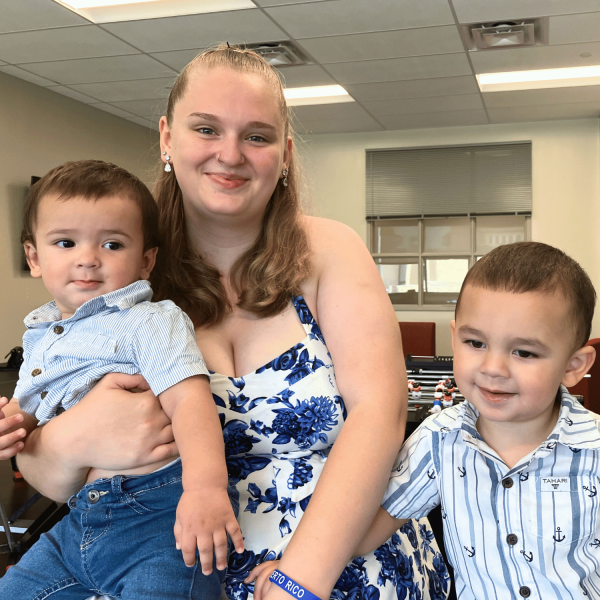SAMANTHA'S STORY
Samantha was raised by her adopted mother from the age of 2 years old. After experiencing conflict at home, she found herself homeless at the age of 16. To pursue a better life, she moved from Massachusetts to New Haven into the home of her future mother-in-law. After the move, she eventually learned that this home was not stable and found herself homeless again with 2 children. She was young, scared and unsure of what her future would bring.
Samantha heard about United Way’s 2-1-1, so she gave it a try and dialed.
Samantha’s 2-1-1 agent helped her secure shelter at a New Haven shelter called Columbus House. Adjusting to her new environment had its challenges but Samantha had a sense of hope, and she kept taking action for herself and her boys.
Samantha got connected with a CAN Case Manager through United Way of Greater New Haven who encouraged her to enroll her sons in an Early Head Start program. This program was facilitated by Elizabeth Celotto Child Care Center where they provide free child care if the parent wishes to pursue their education.
A bit apprehensive to leave her sons in a new environment at first, Samantha was invited to take a tour of the facility. She was soon after convinced that this was the right place for her children. And with only two more classes left to earn her diploma, Samantha enrolled herself into high school as well.
Through community resources like United Way, Samantha was also able to move out of the shelter and secure a two bedroom apartment her family could call home.
Samantha faced highs and lows throughout her journey at such a young age. She wanted to give up at times, but she didn’t let herself, and with the encouragement from her Early Head Start support system, they wouldn’t let her give up either. She used community resources that were available to her and was able to turn her life around, for not only herself, but for her boys and their futures.
“These programs are very important for people like me, and not only for people like me, but also for people in the community as a whole. We need these resources. These programs are a second chance for us to have help, and to know that we're not alone.”

